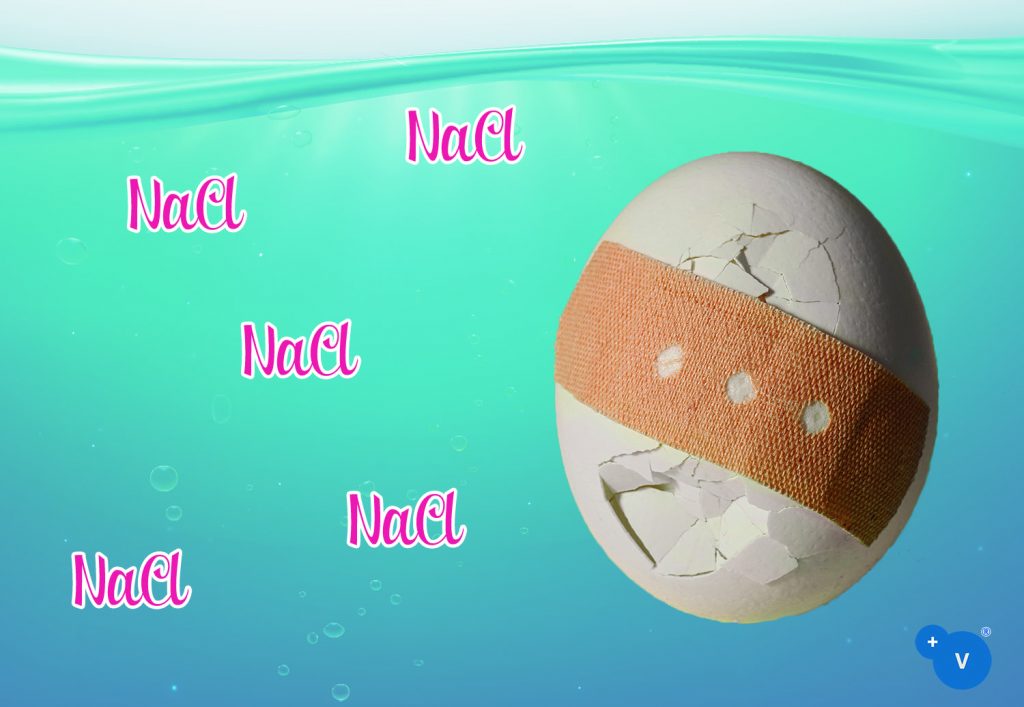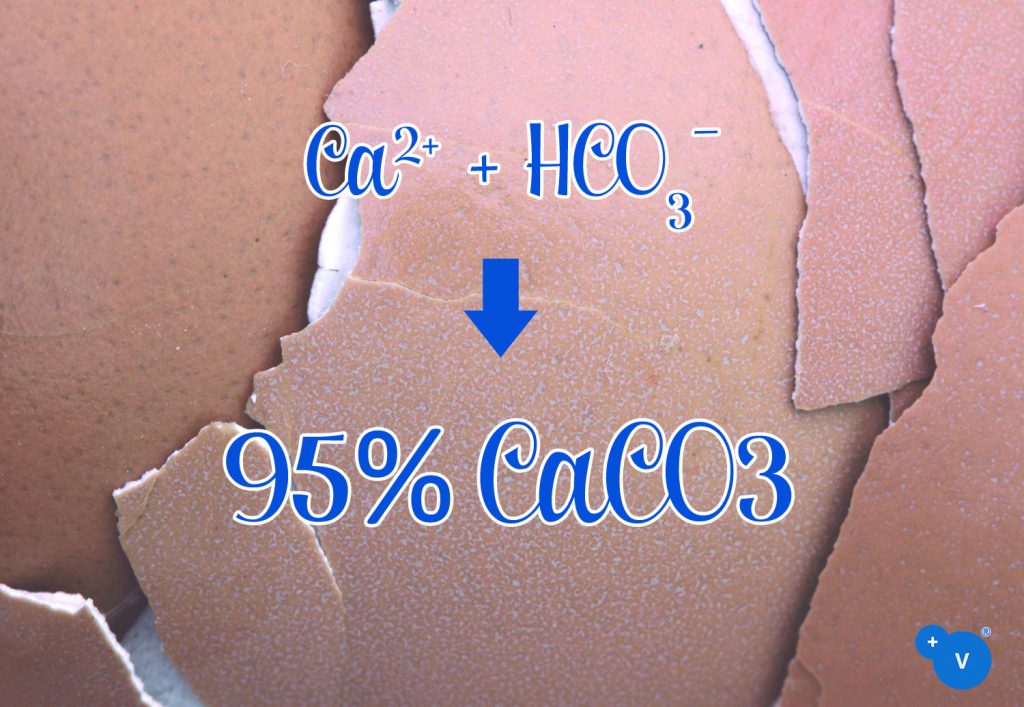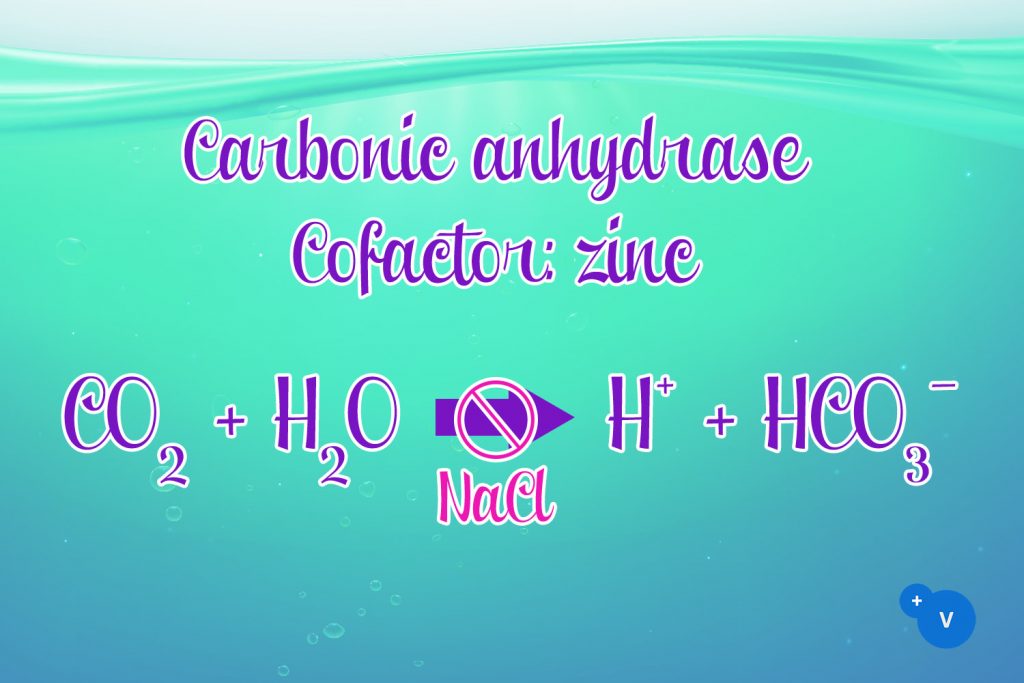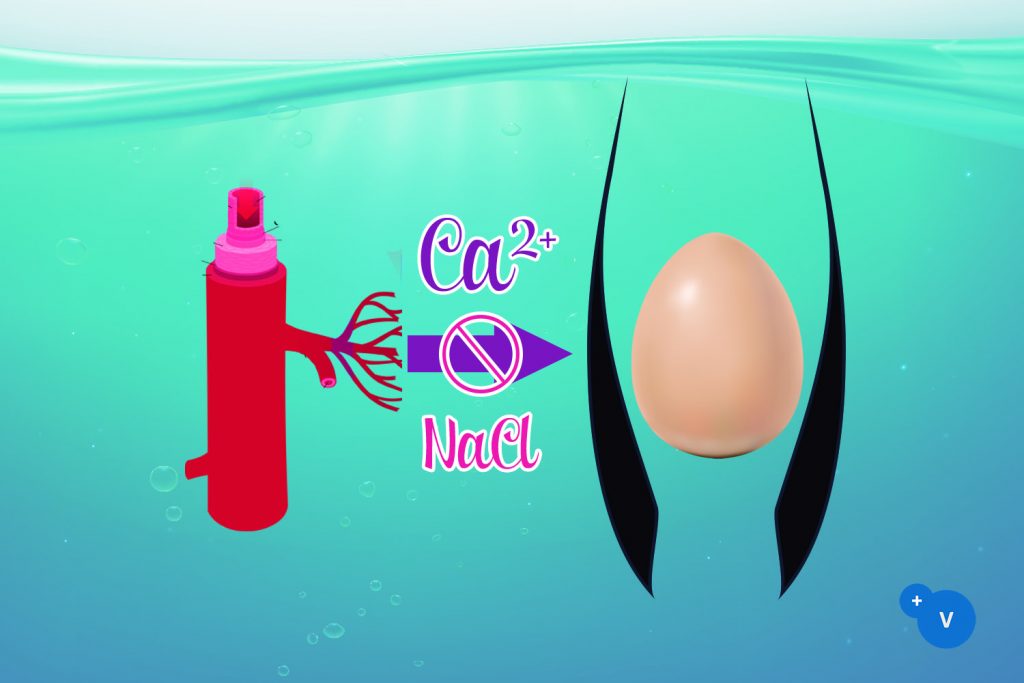12 May Use of PhytoMax© to counteract the negative effects of saline water on eggshell quality

In rural areas, springs, creeks and wells are often used as water sources for poultry farms. Water coming from these sources, especially ground water, may be high in dissolved mineral salts, including sodium chloride.
Sodium chloride, NaCl, is essential for poultry, but it has been shown to have a severe adverse effect on shell quality when received in high concentrations through drinking water. NaCl reduces the breaking strength, shell thickness, shell weight, shell weight/egg weight and shell weight/unit surface, resulting in a higher incidence of cracked, broken and soft eggs. In breeders, saline water leads to a reduced numbers of settable eggs (eggs with an adequate shell quality for incubation) and to a lower hatchability.
Sensitivity to saline water
Sensitivity towards saline water depends on the age of the birds, breed, and individual factors of each hen or flock. Some animals are sensitive to concentrations as low as 200 mg NaCl/l drinking water, while others continue to lay good quality eggs at 2 g NaCl/litre.
When hens are exposed to saline water, the eggshell formation process is altered and, even if they are switched to water with less salinity or given any supplement for treatment, it takes at least 8 weeks to get back to normal.
With age, hens become more sensitive to saline water:
- It is possible to prevent the negative effects of NaCl in pullets that have been exposed to saline water before sexual maturity, by administering a preventive treatment as will be discussed later or switching to water with less salinity.
- Hens that are exposed to saline water at the beginning of the laying period often do not show shell defects until a much later stage, at 29 to 55 weeks of age (delayed effect). Even if after the administration of saline water they are switched to water with less salinity, the eggshell defects will appear anyway because the animals struggle to recover from the damage made by NaCl.
- Hens that receive saline water during the laying peak rapidly show a significant worsening of shell quality, but still can recover after 8 weeks or more if switched to water with less salt.
- Hens that are older than 40 weeks show a higher increase in the percentage of damaged eggs and can not fully recover from the damage produced by saline water.
Furthermore, different breeds of hens have different sensitivity to NaCl. In example, Isa Brown is more resistant than the cross between New Hampshire and White Leghorn. However, it must be taken in account that there is a lot of individual variation and one breed may show a high sensitivity in certain circumstances and be resistant in others.
Interference of NaCl with eggshell formation
The eggshell consists of 95% calcium carbonate, that is produced during eggshell formation from carbonate and calcium.

The negative effects of NaCl on eggshell formation occur possibly through the inhibition of the enzyme carbonic anhydrase and the transport of calcium into the shell gland, but the exact mechanism of action is not fully understood yet.
Sodium chloride interferes with the enzyme carbonic anhydrase
Carbonic anhydrase is an enzyme located in the shell gland that produces carbonate from water and carbon dioxide. This enzyme is zinc-dependent.

Whenever hens are exposed to high amounts of NaCl, the activity of carbonic anhydrase is reduced, and as a result there is less availability of bicarbonate in the shell gland.
Sodium chloride inhibits the transport of calcium to the shell gland
Calbindins are vitamin D-dependent calcium-binding proteins involved in the transport of calcium. They are present in many calcium-transporting tissues, including the intestines and the shell gland.
In hens exposed to saline water, the concentration of calbindins in the shell gland tissues is significantly reduced and, as a result, the uptake of calcium is impaired.

Administration of organic zinc to increase the activity of carbonic anhydrase and calbindins
As explained above, carbonic anhydrase is a zinc-dependent enzyme. It has been proven that the administration of zinc supplements significantly increases (40 to 70% more) the activity of this enzyme.
In hens exposed to saline water, zinc reduces the incidence of cracked, broken, soft and deformed eggs. The parameters related to eggshell strength, such as the breaking strength, shell thickness, shell weight, shell weight/egg weight and shell weight/unit surface, also improve after the administration of zinc supplements. Supplements based on organic zinc are more effective than those based on inorganic zinc, very likely due to the differences in availability.
Furthermore, the concentration of calbindins is also significantly increased (10-17%) after the administration of zinc supplements.
Use of PhytoMax© to counteract the negative effects of saline water on eggshell quality
PhytoMax© is a combination of vitamins, chelated calcium, microminerals and essential oils to be given through drinking water. It includes in its formula an effective concentration of organic zinc.
PhytoMax© is useful to counteract the negative effects of saline water and maintain eggshell quality in the following cases:
- In pullets, before sexual maturity, the use of PhytoMax© can prevent the eggshell defects that will take place later the laying period.
- In hens that are exposed to saline water at the beginning of the laying period and will suffer from the delayed effects of NaCl in later stages, PhytoMax© is able to postpone the emergence of eggshell defects and to the reduce the incidence of unqualified eggs.
- In hens at the peak of lay or older than 40 weeks that produce defective eggs due to saline water, PhytoMax© reduces the incidence of defective eggs. In the case of hens below 40 weeks of age, it speeds up the recovery of a healthy status.
There are many supplements in the market intended to improve eggshell quality. Many of them contain sodium chloride, so the farmer should ensure that the supplement is not raising the NaCl concentration in the drinking water to dangerous levels for the hens. PhytoMax© does not contain sodium chloride, and its complete formula has a proven beneficial effect on the egg quality and the production parameters of breeders and layers.
Products of choice
PhytoMax© is a combination of vitamins, chelated calcium, microminerals and essential oils to be given through drinking water. It is intended for layers and breeders to:
- Maintain the levels of calcium and magnesium needed for optimal egg production.
- Reinforce skeletal health.
- Prevent cage fatigue.
- Stimulate the hepatic metabolism and the immune system.
- Improve the quality of the egg and the health of day-old chicks.
- Avoid the drop of the laying rate produced by stress (management, vaccines, hot weather, etc…)
- At the start of the laying period, to boost productivity.
- Prolong the productive life of the hen.

Certain health statements may not be applicable in your region.

